Approval of the UNBA needs report is unacceptable
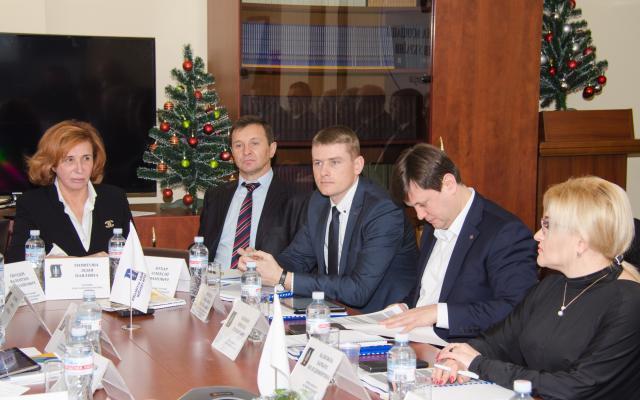
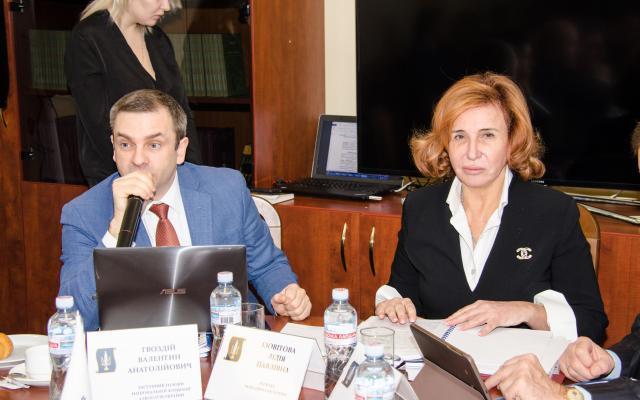
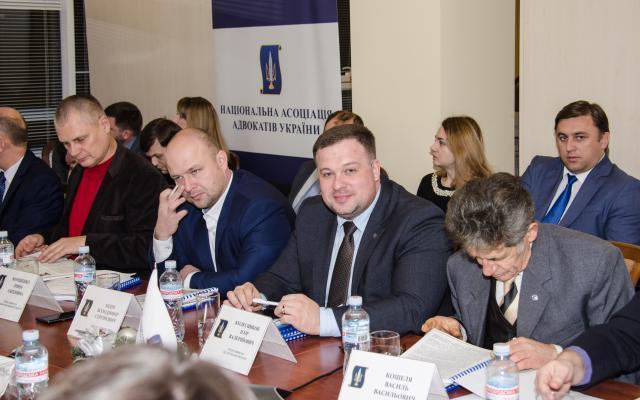
Approval of the Report "On the Needs Assessment Conducted in Respect of the Self-governance of Lawyers in Ukraine", which was composed by international experts within the framework of Council of Europe project ‘Consolidating Ukraine’s Justice Sector Reform’ is unacceptable - statement by UNBA/BCU President Lidia Izovitova during the session of the Bar Council of Ukraine.
"We cannot allow this report to be approved," - said the leader of UNBA, noting the biased nature of the analysis of the state of affairs in the Bar. Citing her statement, the report adopted numerous provisions from the draft law "On amendments to the law "On the Bar and Practice of Law", that the Bar firmly opposed.
UNBA received the final version of the report several hours before presentation. The previous draft of the report received a huge amount of feedback from advocates. The summary comments were laid out on 58 pages and were sent to the Council of Europe Office in Ukraine, but it was mostly ignored during preparation of the report.
"Unfortunately, the experts failed to study the current legislation, acts of UNBA, and thus did not understand how this system works, and reached baseless conclusions", - noted Lidiya Izovitova.
"This report left out important things, instead focused on the destruction of a professional organization and its independence, as opposed to institutional strengthening thereof. The analysis of the current law has not been taken into account. It is an attempt to substitute the expertise of the Venice Commission with expertise of two people," said the UNBA/BCU Vice-President Valentyn Gvozdiy.
Among other devastating proposals, he named the creation of regional chambers of the Bar, that are supposed to unite self-governance in every region; the division of the system of Qualification and Disciplinary Commissions into separate vertically integrated corporations, contrary to the Venice Commission's opinion from 2011, changing the procedure for bar exams, which require presence of three representatives of the future High Qualifications Commission. The report literally recommends to unbalance system of Bar self-government, in fact, render Bar Council of Ukraine and Ukrainian National Bar Association largely irrelevant; it is proposed to fix UNBA President’s term in office to two years, while elect Presidents of regional Chambers of the Bar for five, while the latter is vested with the power to unilaterally manage the entire Bar self-government in the region and dispose of its funds without any oversight.
The report also suggests to impose single-level administration of URAU, where every Chamber of the Bar will be authorized to make unverifiable entries - without a monitoring mechanism at the national level. The consequences of uncontrolled entering of the data into the URAU obviously does not need further comments.
"The suggested model, as our opponents seek it, would probably work in a federated state, not the unitary one, as provided in our Constitution," emphasized Valentyn Gvozdiy.
HQDCB Chairman Aleksandr Drozdov also noted that reference to German model is a questionable at best, while experts’ recommendations to use experience from Poland do not take into account the fact that the Bar reform of the advocacy in this nation was found to be unconstitutional in many respects.
"Experts for some reason keep silent about other approaches, for example those of the United States or Great Britain, where the internship must be undertaken after Bar exam. This experience is ignored for some reason, while we apply it and it yields positive results" said Aleksandr Drozdov.
The report recommended to limit the sources of income for the independent Bar, regardless of the fact that as a matter of law it has already been limited. Thus, the basis for independent organizational activity gradually fades away.Popular news
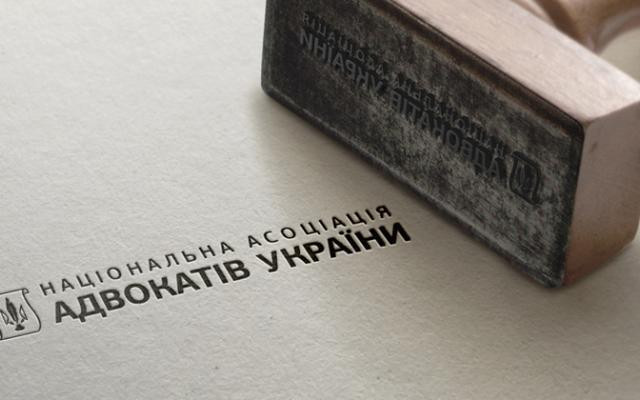
Self-government
The BCU demands a review of the composition of the government working group on reforming the advocacy profession
The President of the UNBA, BCU Lidiya Izovitova, appealed to the Cabinet of Ministers of Ukraine to review the composition of the working group on improving legislation in the field of advocacy and legal practice.

Discussion
Why lowering the age of marriage lacks legal logic
Although until 2012 there was a provision in family law that allowed children to marry from the age of 14 under certain circumstances, its return to Ukrainian law would contradict international obligations and the logic of criminal law.
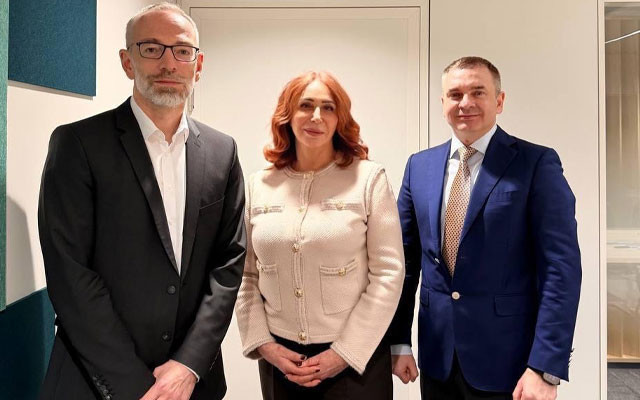
European integration
Open dialogue between the UNBA and the European Commission on the path to EU
The Ukrainian National Bar Association held a working meeting in Brussels with Mr Wolfgang Nozar, Head of Unit for Governance, Rule of Law and Financial Assistance, Directorate-General for Enlargement and Eastern Neighbourhood (DG ENEST), European Commission.

Self-government
A report on Ukrainian advocacy was presented in the European Parliament
Can a shadow report on advocacy replace the political framework of the Roadmap on the rule of law with demands for the restructuring of self-government? Where is the line between accountability and the seizure of institutions? And how can we respond to narratives with data rather than impressions?
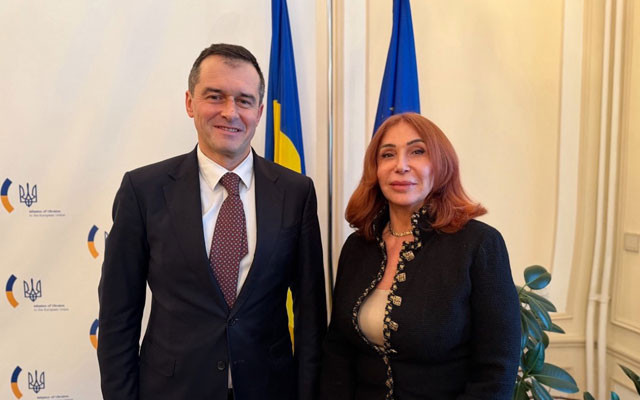
European integration
UNBA and Ukraine's representation to the EU have synchronized their priorities
On February 5, in Brussels, the President of the UNBA, BCU Lidiya Izovitova held a working meeting with the Ambassador Extraordinary and Plenipotentiary of Ukraine, Representative of Ukraine to the European Union Vsevolod Chentsov.

Guarantees of the practice of law
Proceedings opened following attack on advocate in Dnipro
The Committee for the protection of advocates' rights and guarantees of legal practice of the UNBA appealed to law enforcement agencies in connection with an advocate's report of an attack while performing his professional duties. The information was entered into the Unified Register of Pre-trial Investigations and a pre-trial investigation was initiated.
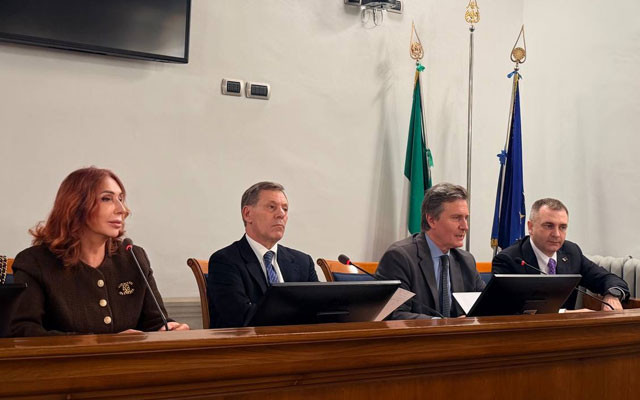
Interaction
«With us — to Europe»: Italian advocacy supports UNBA initiatives
On January 30, a meeting was held in Rome between a delegation from the Ukrainian National Bar Association and the National Bar Council of Italy (Consiglio Nazionale Forense, CNF) on the standards and practices of the legal profession and their significance for Ukraine's European integration process.
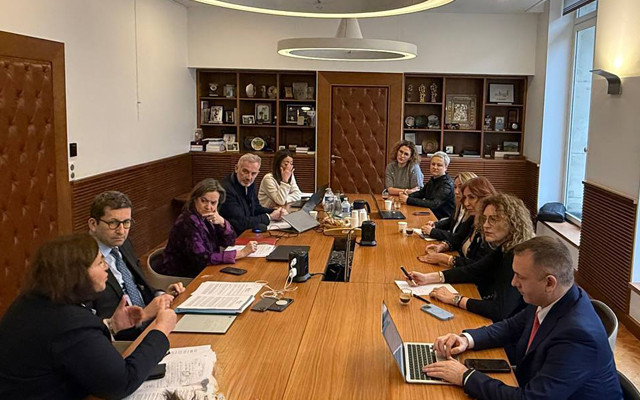
Interaction
France confirms cooperation with UNBA on reforms in the field of the rule of law
On January 29, a working meeting between representatives of the Ukrainian National Bar Association and the French National Bar Council (Conseil National des Barreaux, CNB) took place in Paris.
Publications

Volodymyr Matsko Extradition as a systemic form of rights violations

Victoria Yakusha, Law and Business The anti-corruption vertical cannot «take care» of the Bar as an institution, - acting head of the HQDCB

Censor.net Protecting advocates – protecting justice: addressing concerns about the new law

Ihor Kolesnykov A BRIEF SUMMARY REGARDING THE APPLICATION OF THE ORDER ON EXTENDED CONFISCATION IN LATVIA REGARDING FINANCIAL ASSETS OF…

Valentyn Gvozdiy WORKING IN A WAR ZONE

Lydia Izovitova Formula of perfection

Sergiy Vylkov Our judicial system is so built that courts do not trust advocates

Iryna Vasylyk Advocacy in the proclamation of Independence of Ukraine
